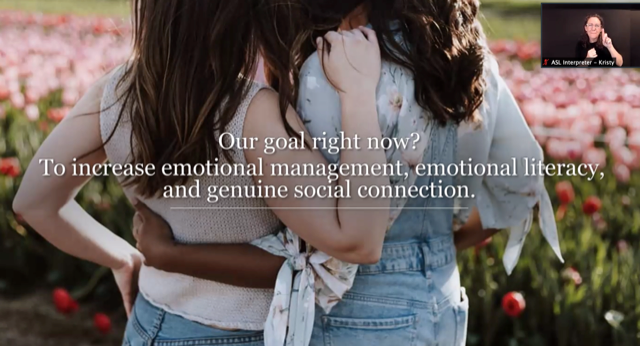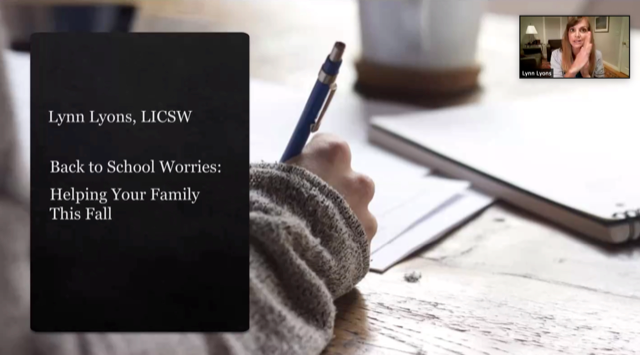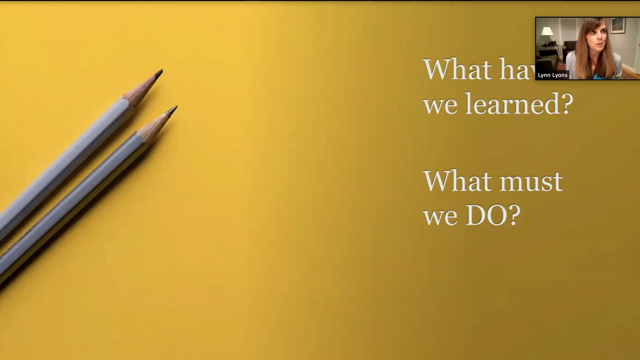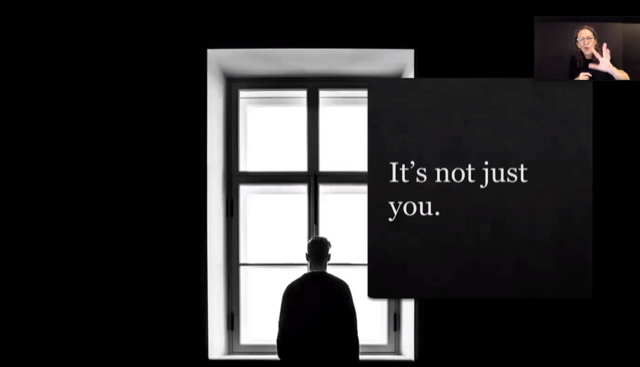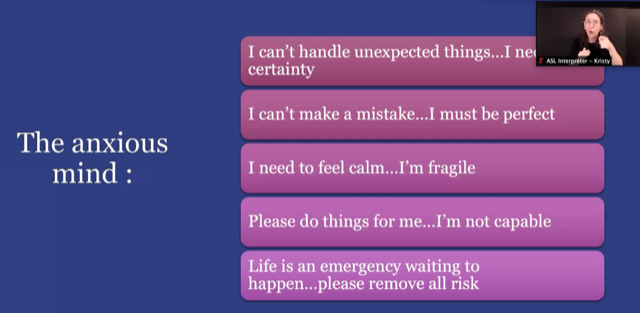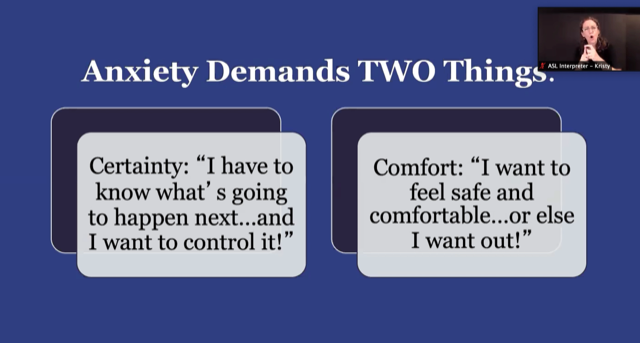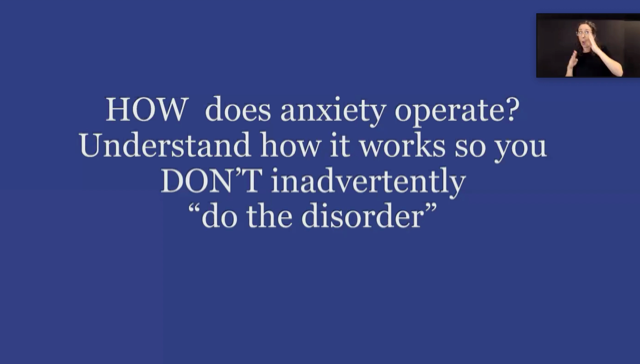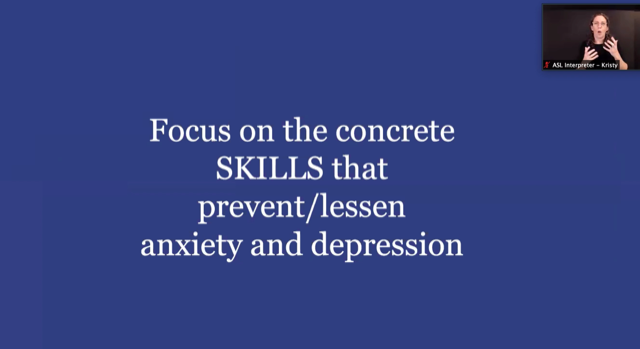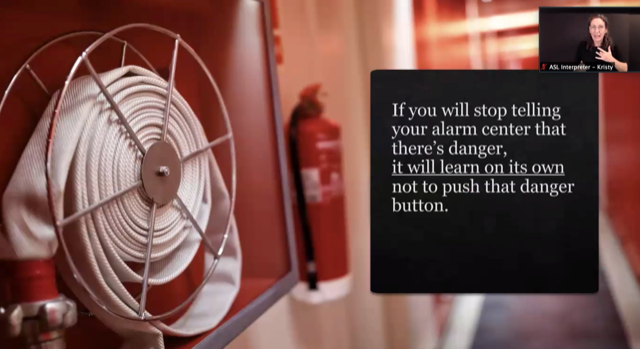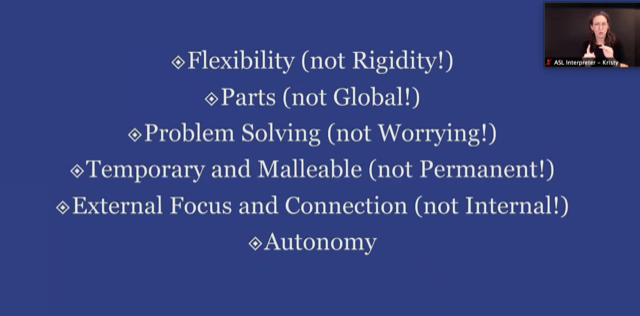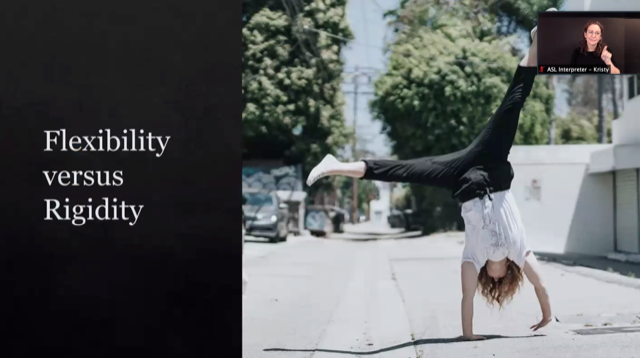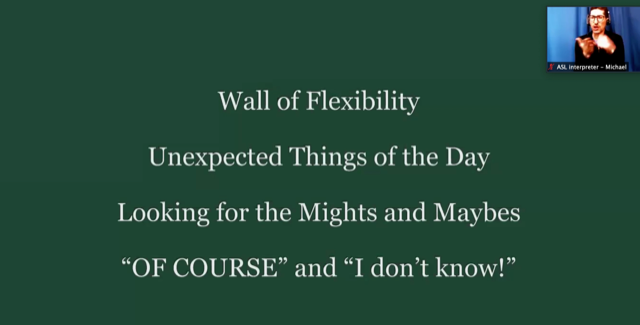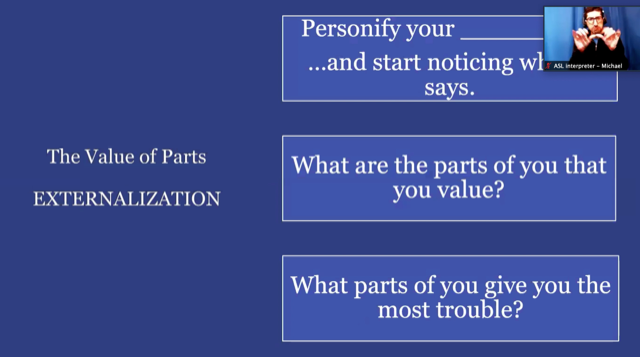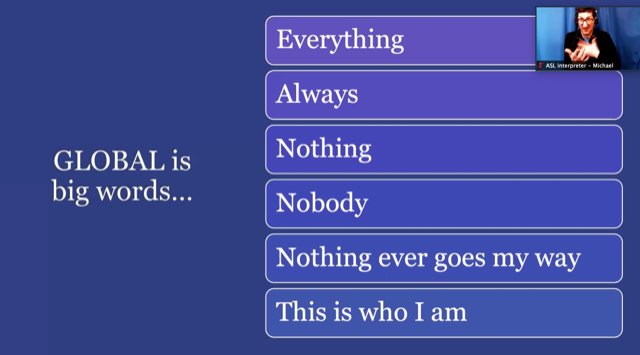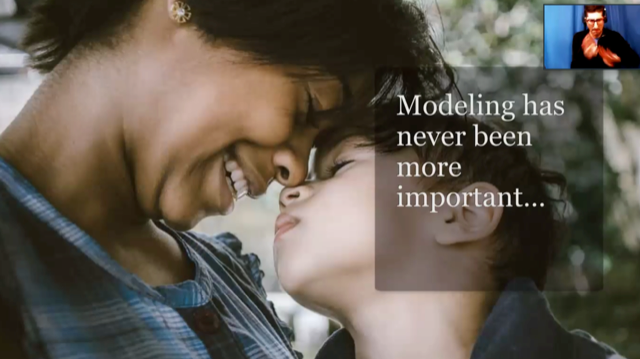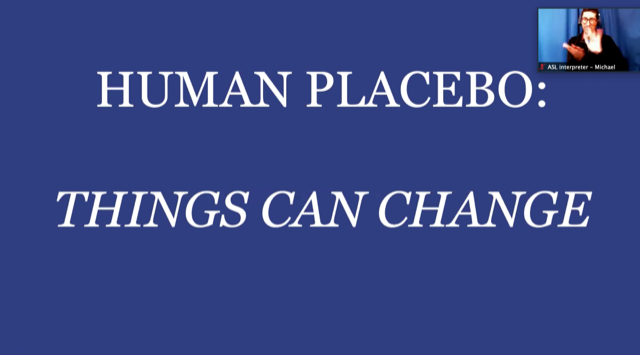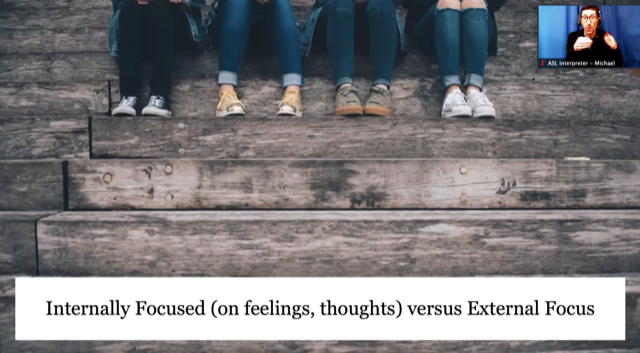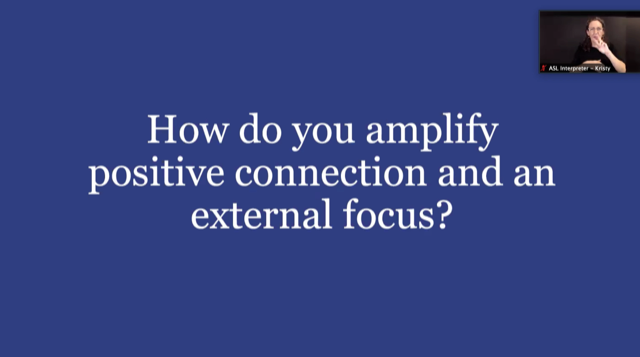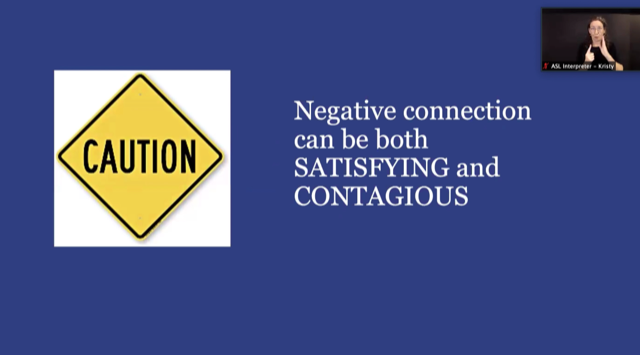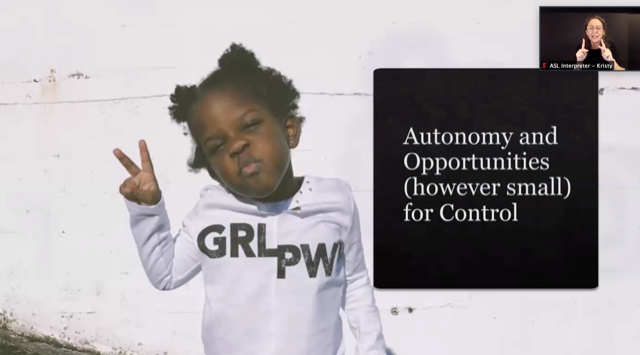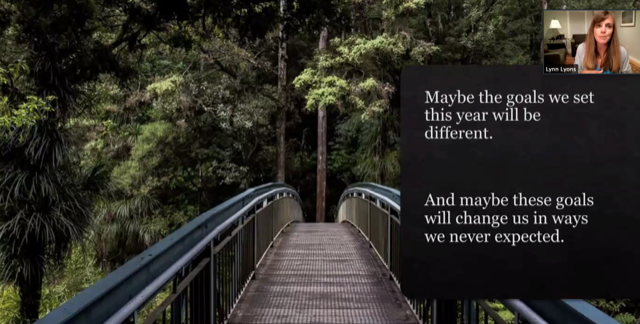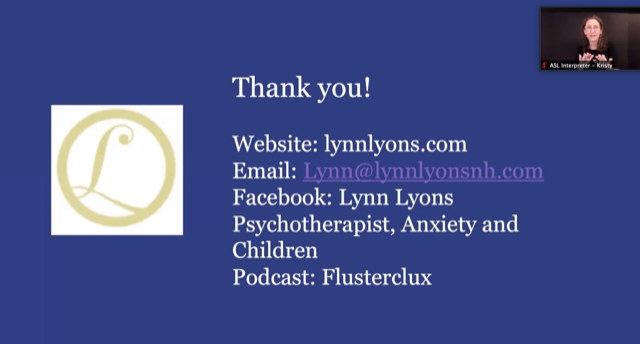By Sydni Williams
[broadstreet zone=”53230″]
FRAMINGHAM – Spark Kindness hosted a free online workshop for parents with back-to-school worries with guest speaker Lynn Lyons spoke on parenting tactics to help their kids with stress and anxiety, last week.
Catherine Guthery from Spark Kindness prefaced Lyon’s speech with a message about Justice: “We wanted to say that Spark is committed to not only supporting kindness in our community, but justice as well.” Now, she said “building an inclusive community is a commitment of ours” because “kindness without justice is incomplete.”
Lyons is a psychotherapist, author, and renowned expert who is known for “her practical approach and her compassionate approach to both parents and young people” Guthery said. Lyons also has a podcast called “Fluster Clux” and a successful Facebook page.
“Hi, How’s everyone’s anxiety?” Lyons asked to start her presentation called Back to School Worries: Helping Your Family This Fall.
[broadstreet zone=”54526″]

This is a “really strange and heavy time,” Lyons said and there has been a significant impact on our young people, parents, people working in education, and even middle schoolers.
However, “the impact on people below the age of 25” is even more tremendous because there are so many changes between the ages of 11 and 25. “If you’re older, life is more stable” Lyons said, but “this period, between the ages of about 11 and about 25, is challenging.”
With all the negatives in this time, Lyons said “I want you to ask yourself what you have learned through this” and “What you’ve discovered about your family, about your parenting.” She said to do the same with kids, asking “What do you feel proud of during this?”
From her own clients, Lyons has heard kids say that they learned what it feels like to be bored, others learned what it felt like to get 8 hours of sleep; parents reported that they had the opportunity to spend time with their kids and play board games.
Across the country, there are different models of school, remote, hybrid, and full return. In the last couple months, Lyons reported that “Loneliness and isolation was brought up as the top indicator of young people going through this.”
Lyons said that kids “need to hear that this is not just them. That the things that they are feeling, the experiences they are having, that the thoughts and the frustrations and even the little moments of joy or the relief that they are feeling… everyone is feeling those things.”
In this time, “we’re not seeing a huge explosion of new mental health diagnosis… we’re seeing an exacerbation of symptoms.”
[broadstreet zone=”70106″]
How does anxiety operate and how is it different than worry? Although anxiety and worry are used interchangeably they are not the same thing. According to Lyons, worry is “the cognitive process… this is the thinking about things, this is the zooming into the future, this is the doubt factory, this is the what-if place.”
Anxiety, on the other hand, “is really predictable” and “actually refers to specifically the physical symptoms that are caused when our fight or flight gets activated.”
Lyons explained to parents how to help their kids to deal with anxiety and worry. She said “We want to make sure that we’re not ‘doing the disorder,’” which means trying to get rid of the stress and immediately make kids feel better. “The problem” Lyons said, “is anxiety… if you try and get rid of it actually gets stronger, it’s paradoxical that way.”
“Anxiety wants certainty and comfort,” but “life is uncertain and life is uncomfortable.” Comforting those with anxiety and assuring certainty, eventually backfires. Lyons said that we need to teach kids how to handle uncertainty and uncomfortability.
[broadstreet zone=”58610″]
“Give anxiety a name” Lyons said. Then you can “begin to recognize the patterns, begin to recognize the redundancy, begin to recognize the repetition of it. Once we put a little distance between us and our thinking, between us and our responses, then we get some of our agency back. The more that we can begin to respond and react differently the more we can lay down new pathways in our brain.”
To prevent and lessen anxiety and depression, we need to focus on concrete skills with two general steps. “Step One” you need to recognize that “you are going to have thoughts, you are going to have feelings, you are going to have sensations.” “Step Two: how do you respond?”
Anxiety and depression prevention is just as important in parents as it is in kids because if kids can see parents modeling and handling their anxiety and worry, kids will learn how to handle their own. This is called Emotional Literacy and it is ““The ability to talk about what’s going on inside them” and to share and identify their feelings.

The main skills to improve emotional literacy are flexibility (not rigidity), parts (not global), problem solving (not worrying), temporary and malleable (not permanent), external focus and connection (not internal), and autonomy.
Lyons explained that with flexibility, she is “not talking about getting rid of structure.” However, she is getting rid of rigidity: the overplanning, over preparing, overthinking, and over talking, which cause anxiety. “When people are rigid… they have an idea in their heads about how things are supposed to go” and when things don’t go to plan “The rigid person loses their mind.”
Another skill is speaking about parts, instead of using global language. “Global language is the language of being overwhelmed” Lyons said, when we use everything, always, nothing, and nobody. Talking in parts limits the vastness of anxiety and makes it easier to manage. Lyons suggested asking “What are the parts of you that you value?” or “What parts of you give you the most trouble?”
[broadstreet zone=”59945″]
Then Lyons warned against harmful parenting, such as catastrophic parents, which are those who always go to the worst case scenario. Catastrophic parenting increases anxiety for both kids and parents, and parents should use the language of problem solving.
“When we are talking to young people about their mental health, it is not a good idea to talk about it in a way that makes them come to the conclusion that it is permanent.” Lyons said that it’s important to instill positive expectancy in young people, reminding them that “things can change.”
2020 has felt like a long tunnel and we keep looking for the light at the end; Lyons said that “right now we still feel like we’re in the tunnel.”
[broadstreet zone=”59948″]
***
Sydni Williams is a 2020 SOURCE intern. She is a student at St. Mark’s School in Southborough.
Screenshots of the Zoom event by Spark Kindness

